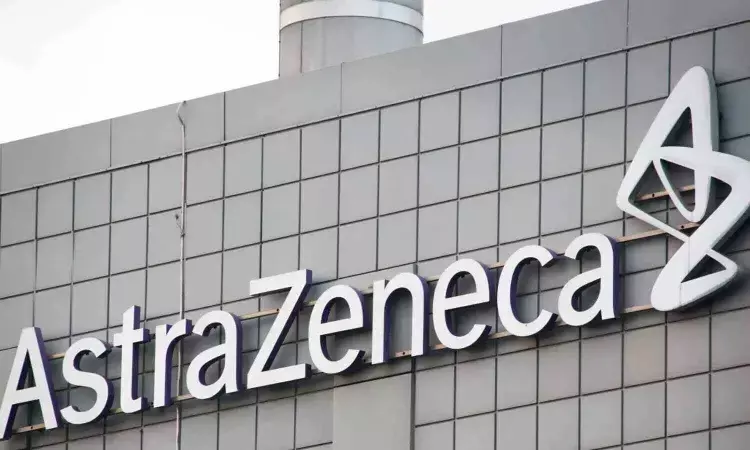- Home
- Medical news & Guidelines
- Anesthesiology
- Cardiology and CTVS
- Critical Care
- Dentistry
- Dermatology
- Diabetes and Endocrinology
- ENT
- Gastroenterology
- Medicine
- Nephrology
- Neurology
- Obstretics-Gynaecology
- Oncology
- Ophthalmology
- Orthopaedics
- Pediatrics-Neonatology
- Psychiatry
- Pulmonology
- Radiology
- Surgery
- Urology
- Laboratory Medicine
- Diet
- Nursing
- Paramedical
- Physiotherapy
- Health news
- Fact Check
- Bone Health Fact Check
- Brain Health Fact Check
- Cancer Related Fact Check
- Child Care Fact Check
- Dental and oral health fact check
- Diabetes and metabolic health fact check
- Diet and Nutrition Fact Check
- Eye and ENT Care Fact Check
- Fitness fact check
- Gut health fact check
- Heart health fact check
- Kidney health fact check
- Medical education fact check
- Men's health fact check
- Respiratory fact check
- Skin and hair care fact check
- Vaccine and Immunization fact check
- Women's health fact check
- AYUSH
- State News
- Andaman and Nicobar Islands
- Andhra Pradesh
- Arunachal Pradesh
- Assam
- Bihar
- Chandigarh
- Chattisgarh
- Dadra and Nagar Haveli
- Daman and Diu
- Delhi
- Goa
- Gujarat
- Haryana
- Himachal Pradesh
- Jammu & Kashmir
- Jharkhand
- Karnataka
- Kerala
- Ladakh
- Lakshadweep
- Madhya Pradesh
- Maharashtra
- Manipur
- Meghalaya
- Mizoram
- Nagaland
- Odisha
- Puducherry
- Punjab
- Rajasthan
- Sikkim
- Tamil Nadu
- Telangana
- Tripura
- Uttar Pradesh
- Uttrakhand
- West Bengal
- Medical Education
- Industry
Astrazeneca Calquence granted priority review by USFDA for previously untreated mantle cell lymphoma

Cambridge: AstraZeneca's supplemental New Drug Application (sNDA) for Calquence (acalabrutinib) has been accepted and granted Priority Review in the US for the treatment of adult patients with previously untreated mantle cell lymphoma (MCL).
The Food and Drug Administration (FDA) grants Priority Review to applications for medicines that, if approved, would offer significant improvements over available options by demonstrating safety or efficacy improvements, preventing serious conditions or enhancing patient compliance. The Prescription Drug User Fee Act date, the FDA action date for their regulatory decision, is anticipated during the first quarter of 2025.
MCL is a rare and typically aggressive form of non-Hodgkin lymphoma (NHL), resulting when B-lymphocytes mutate into malignant cells within a region of the lymph node known as the mantle zone. The disease is often diagnosed at advanced stages and remains largely incurable. It is estimated that there are more than 27,500 people living with MCL worldwide.
Susan Galbraith, Executive Vice President, Oncology R&D, AstraZeneca, said, “The Priority Review acceptance reinforces the potential of Calquence to transform outcomes in untreated mantle cell lymphoma. Data from the ECHO trial showed Calquence plus chemoimmunotherapy significantly delayed disease progression and showed a trend to improved survival in patients with this currently incurable blood cancer. We are working closely with the FDA to provide patients this potential new treatment as soon as possible.”
The sNDA is being reviewed under Project Orbis, an initiative of the FDA which provides a framework for concurrent submission and review of oncology medicines among participating international partners to bring cancer treatments to patients around the world as early as possible.
Results from the ECHO Phase III trial recently were presented during the late-breaking oral session at the European Hematology Association (EHA) 2024 Hybrid Congress.
In the trial, Calquence plus bendamustine and rituximab reduced the risk of disease progression or death by 27% compared to standard-of-care (SoC) chemoimmunotherapy (hazard ratio [HR] 0.73; 95% confidence interval [CI] 0.57-0.94; p=0.016). The addition of Calquence to SoC provided almost 1.5 years of additional median progression free survival (mPFS) with mPFS of 66.4 months for patients treated with the Calquence combination versus 49.6 months with SoC.
Overall survival (OS) showed a favourable trend for the Calquence combination compared to SoC chemoimmunotherapy (HR 0.86; 95% CI 0.65-1.13; p=0.2743). The OS trend was sustained over time, although most patients in the SoC arm who needed subsequent therapy received a BTK inhibitor, mainly Calquence. The OS data were not mature at the time of this analysis, and the trial will continue to assess OS as a key secondary endpoint.
The ECHO trial was conducted during the COVID-19 pandemic, and prespecified PFS and OS analyses censoring for COVID-19 deaths were conducted to assess the impact of COVID-19 on the study outcome in alignment with FDA. After censoring for COVID-19 deaths, the PFS was further improved in both arms, with the Calquence combination reducing the risk of disease progression or death by 36% (HR 0.64; 95% CI; 0.48-0.84; p=0.0017). A favourable trend was seen for OS in this analysis for the Calquence combination, but OS data were not mature at the time of this analysis (HR 0.75; 95% CI 0.53-1.04; p=0.0797).
The safety and tolerability of Calquence was consistent with its known safety profile, and no new safety signals were identified.
Ruchika Sharma joined Medical Dialogue as an Correspondent for the Business Section in 2019. She covers all the updates in the Pharmaceutical field, Policy, Insurance, Business Healthcare, Medical News, Health News, Pharma News, Healthcare and Investment. She has completed her B.Com from Delhi University and then pursued postgraduation in M.Com. She can be contacted at editorial@medicaldialogues.in Contact no. 011-43720751
Dr Kamal Kant Kohli-MBBS, DTCD- a chest specialist with more than 30 years of practice and a flair for writing clinical articles, Dr Kamal Kant Kohli joined Medical Dialogues as a Chief Editor of Medical News. Besides writing articles, as an editor, he proofreads and verifies all the medical content published on Medical Dialogues including those coming from journals, studies,medical conferences,guidelines etc. Email: drkohli@medicaldialogues.in. Contact no. 011-43720751


